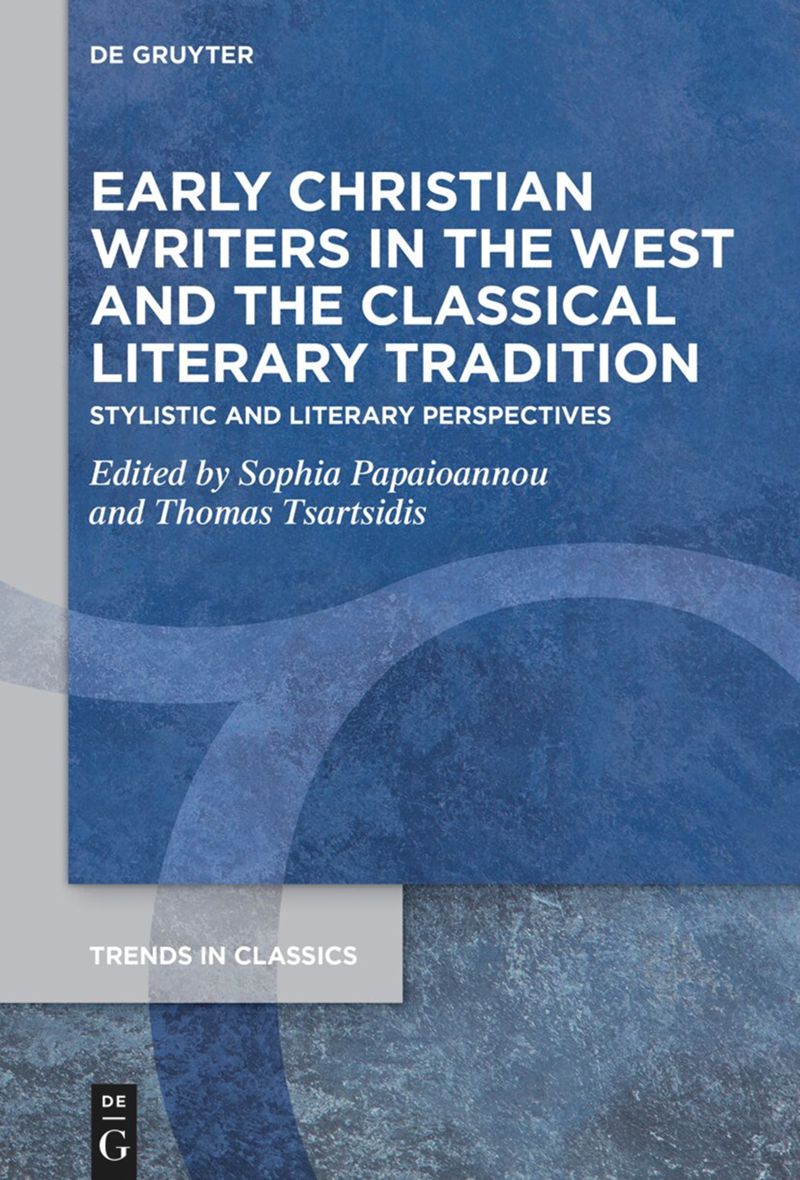
I am happy to announce that the volume Early Christian Writers in the West and the Classical Literary Tradition: Stylistic and Literary Perspectives has just been published by De Gruyter. The editors Sophia Papaioannou and Thomas Tsartsidis have done excellent job! The idea of the volume was to collect research on early Christian writers from the literary and stylistic perspective.
The rationale of the volume: ”Early Christian prose writers of the Latin West (2nd–5th c. AD) have long been studied predominantly from theological and historical perspectives. Hence, there is a conspicuous scarcity of comprehensive studies approaching these texts from stylistic and literary angles. This volume will be an important step towards filling this substantial gap in recent scholarship. It will include chapters on selected Latin Christian writers such as Tertullian, Arnobius, Lactantius, Firmicus Maternus, Ambrose, Jerome, and Augustine. It aims at investigating, on the one hand, ways in which these texts can be appreciated as literary texts in their own right, by exploring the style and imagery employed in them; and, on the other, the intricate and meaningful modes in which these writers interact, develop, and transform phraseology, topoi, concepts, and techniques found in Classical literature. This volume will offer a paradigmatic overview as to the usefulness of approaching early Christian writers through a literary lens, thus opening up new paths of research across various disciplines including Classics, Literary Studies, Theology, and (Social) History.”
My own contribution is on Firmicus Maternus: ”Stylistic and Rhetorical Techniques in Firmicus Maternus’ De errore profanarum religionum”. The abstract of my article: ”In his polemical and apologetic work De errore profanarum religionum (c. 343–350), Firmicus Maternus both attacks polytheistic religions and propagates Christianity. Was Firmicus a recent convert to Christianity, as earlier research has found him to be? What were the stylistic and rhetorical means by which he rejected the polytheistic cults and beliefs, and justified Christian teachings? This article analyses representative examples of these means, calling attention to Firmicus’ literary sensibilities which to date have attracted less attention than they deserve.”

